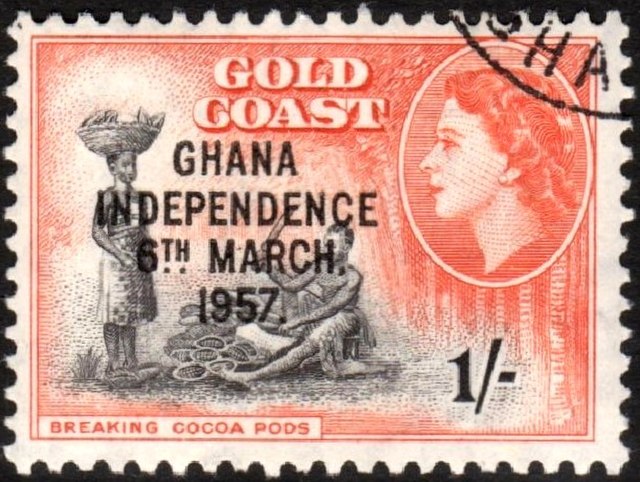The economy of Ghana has a diverse and rich resource base, including the manufacturing and exportation of digital technology goods, automotive and ship construction and exportation, and the exportation of diverse and rich resources such as hydrocarbons and industrial minerals.
Share of population in extreme poverty over time, 1981 to 2019
Ghana hydropower and solar energy electricity generation industries, and the oil and gas industry
Ghanaian mineral resources: bauxite, diamond, timber and manganese
Ghana's increasing oil exports as a percentage of all exports.
Ghana, officially the Republic of Ghana, is a country in West Africa. It abuts the Gulf of Guinea and the Atlantic Ocean to the south, sharing a border with Ivory Coast in the west, Burkina Faso in the north, and Togo in the east. Ghana covers an area of 239,567 km2 (92,497 sq mi), spanning diverse biomes that range from coastal savannas to tropical rainforests. With over 32 million inhabitants, Ghana is the second-most populous country in West Africa. The capital and largest city is Accra; other significant cities include Kumasi, Tamale, and Sekondi-Takoradi.
18th-century Ashanti brass kuduo. Gold dust and nuggets were kept in kuduo, as were other items of personal value and significance. As receptacles for their owners' kra, or life force, kuduo were prominent features of ceremonies designed to honour and protect that individual.
The Portuguese established the Portuguese Gold Coast with the construction of Elmina Castle (Castelo da Mina) by Diogo de Azambuja in 1482, making it the oldest European building in sub-Saharan Africa.
A Gold Coast postage stamp overprinted for Ghanaian independence in 1957
Traditional chiefs in 2015








